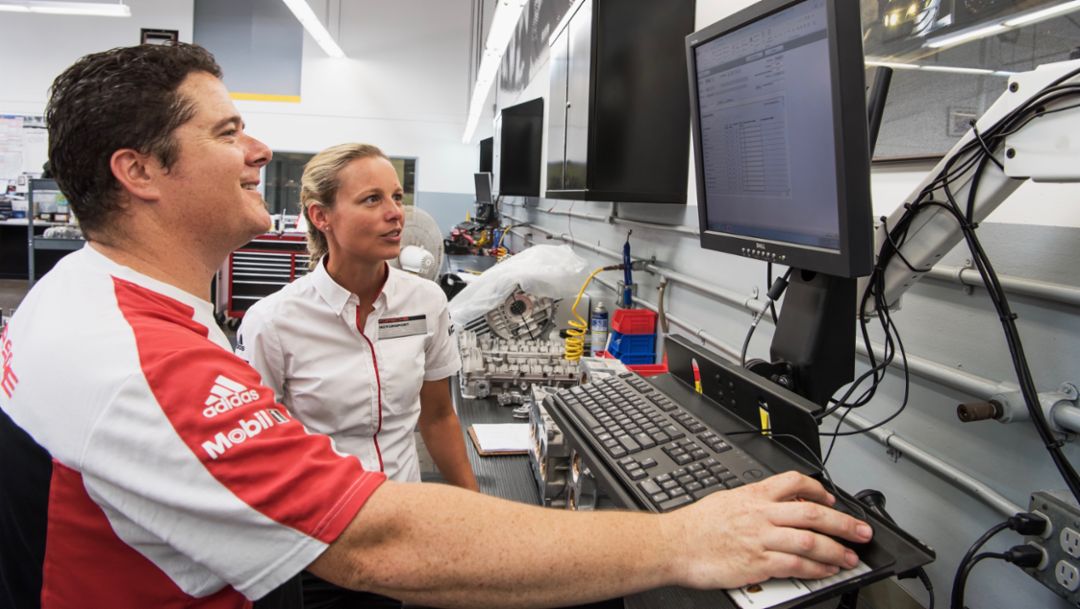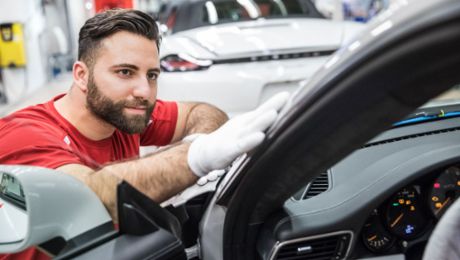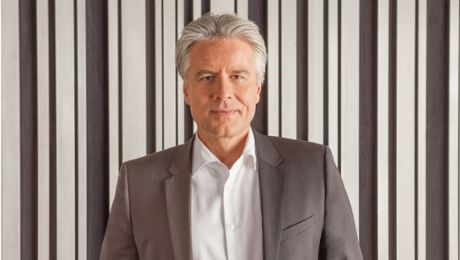Do you envisage having more time for your hiking hobby in the future as Member of the Executive Board for Human Resources? After all, electric cars require fewer people to build them.
Andreas Haffner: I’m certainly not worried about getting bored. We are actually still increasing our employee numbers for manufacturing conventional drives because we plan to offer our three-way combination of plug-in hybrids, vehicles with internal combustion engines and purely electric sports cars for a relatively long time to come – at least until 2030.
How difficult is it to attract employees at the moment?
As you would expect, there is a certain amount of competition for specialists, particularly in the fields of IT, networking and digitisation. Traditional recruitment tools and even the strength of the Porsche brand itself do not have the same appeal for this target group as they may have done in previous years. Instead, we have to showcase our business more proactively than before and advertise in the areas where we expect to find appropriate candidates – and on an international scale, too. Obviously we actively use social media for this purpose and we look at the other online channels that people use for professional networking-
In the past, companies have sought out suitable employees at universities, and now they are looking at high schools. Will Porsche be going into primary schools too at some point in the future?
I can certainly imagine representatives from Porsche going into primary schools to encourage children to get excited about technical topics. One of the major problems that we face today is the fact that children have little interest in technical subjects. We also want to get the girls interested in our work. On the face of it, a career in engineering does not seem very glamourous. After all, have you ever seen a TV series where an engineer is one of the starring roles? These points are at the heart of the issue.
Do you need to take a different approach depending on whether you are looking for male or female recruits?
Yes, women need to be approached in a more specific format. And that’s exactly what we do. For example, we cooperate with Femtech, an international career platform for women in the fields of engineering and the applied sciences.
Some 1,200 employees will be required for production of the Taycan electric sports car. Is this number of specialists even available?
At Porsche, the product, the brand and the image all help to ensure that we receive a great deal of applications. So I’m confident that we will find a sufficient number of qualified applicants. We have also developed an extensive training programme that will help us to prepare the new employees for their respective tasks in the best possible way.
Are you worried that your long-standing employees will not accept the new recruits?
No; this is not really a new situation for us and we have been able to manage without any issues so far. We rely on a good mix of new and existing, younger and older colleagues who work in a new plant with processes that are fundamentally different to what the existing employees have been used to. Even the long-standing employees who wish to move from sports car production to Taycan production will need to start afresh.
Does Porsche rely on a variety of different working methods?
Of course. In addition to “traditional” working methods, the company is increasingly implementing “agile” working methods that are flexible enough for us to adapt to our respective needs. We’ve actually worked on our operating agreements already with our employee representatives who helped us to finish them in a relatively short period of time.
Are you able to inspire older employees with these agile working methods?
The desire to try out new working methods is not a matter of age at Porsche. We have plenty of older employees who are very interested in exploring innovative working methods within their projects. The distinction is that nobody is forced to do so.
Do you ever hear people argue: “We don’t need new working methods; we build good cars and we are already successful”?
Yes, sometimes. But in principle it has always been our determination to evolve that has made us stand out. And this determination still prevails today. For example, in January we launched a new electronic learning platform that allows employees to explore the topic of digital transformation in a very individual format and thus control their own development. More than 12,000 employees have already registered. That number speaks for itself.
The staff turnover rate at Porsche is just 0.6 per cent – does this cause any problems?
First and foremost it is an indication that the company has a good culture. And don’t forget that just since 2010 we have grown to more than 30,000 employees from only 13,000. This gave us an organic period of rejuvenation. For us, the greatest challenge is not to lose the garage feeling in the midst of this growth. This is why we worked on our cultural principles again in 2017 – and we did this in typical Porsche style with the help of a working group of 85 employees from all levels and departments and who had spent differing amounts of time at the company.
Will you continue to grow?
We still expect some growth but it will be much more moderate than in the past. We need to take stock of our growth in recent years first, and ensure that we integrate our new employees structurally and, more importantly, culturally in the business.




